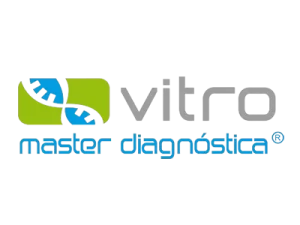DSS: Redefining Biotechnology & Life Science in India
- About Us
- Products & Services
PRODUCTS & SERVICES
-
Kits Reagents & Consumables
- Cytogenetics
- Dyes
- Fluorescence In Situ Hybridization (FISH)
- High-Performance Liquid Chromatography (HPLC)
- Histology
- Immuno Histo Chemistry (IHC)
- Molecular Pathology & Diagnostics
- Multiplex Ligation-Dependent Probe Amplification (MLPA)
- Nucleic Acid Extraction
- PharmDx
- Real Time PCR
- Sequencing
- Special Stains
-
Instruments
- Biosafety
- Cameras
- Cell Culture monitoring
- CO2 Incubator
- Cytogenetics Systems
- Digital Slide Scanners
- Electrophysiology Systems
- Endoscopy System
- Fluorescence In Situ Hybridization (FISH)
- H&E
- Immuno Histo Chemistry (IHC)
- Microfluidics
- Microscopes
- Molecular Pathology & Diagnostics
- Multichannel Imaging Systems
- Real Time PCR
- Special Stains
- Software
- Accessories
- Advanced Material
-
Kits Reagents & Consumables
- Applications & Specialities
All Applications & Specialities
- Brands
- Contact Us
-

-
 0
0
- ☰
- About Us
- Products & Services
-
Kits Reagents & Consumables
- Cytogenetics
- Dyes
- Fluorescence In Situ Hybridization (FISH)
- High-Performance Liquid Chromatography (HPLC)
- Histology
- Immuno Histo Chemistry (IHC)
- Molecular Pathology & Diagnostics
- Multiplex Ligation-Dependent Probe Amplification (MLPA)
- Nucleic Acid Extraction
- PharmDx
- Real Time PCR
- Sequencing
- Special Stains
-
Instruments
- Biosafety
- Cameras
- Cell Culture monitoring
- CO2 Incubator
- Cytogenetics Systems
- Digital Slide Scanners
- Electrophysiology Systems
- Endoscopy System
- Fluorescence In Situ Hybridization (FISH)
- H&E
- Immuno Histo Chemistry (IHC)
- Microfluidics
- Microscopes
- Molecular Pathology & Diagnostics
- Multichannel Imaging Systems
- Real Time PCR
- Special Stains
- Software
- Accessories
- Advanced Material
-
Kits Reagents & Consumables
- Applications & Specialities
- Brands
- Brand - Life Sciences
- 3i
- ABBERIOR INSTRUMENTS
- Abbott Molecular
- ADS Biotec
- APPLIED SPECTRAL IMAGING
- BioAir Tecnilabo
- DAKO (AGILENT)
- Eden Tech
- Elveflow
- ENTROGEN
- EUROCLONE
- EVIDENT
- Genea
- Hamamatsu Photonics
- Invivoscribe
- MASTER DIAGNOSTICA
- MBF BIOSCIENCE
- Medical Tek Co. Ltd
- MILESTONE MED SRL
- Molecular Machines & Industries
- MRC HOLLAND
- NeoDx
- Onward Assist
- PHOTOMETRICS
- Profound
- SCIENTIFICA
- µCyte
- Seqlo
- Brand - Industrial
- Brand - Life Sciences
- News & Events
- Career
- Contact Us
- Testimonial
- Blogs
- R&D
- CSR

Molecular pathology & Diagnostics
BY Muskan Jain December 20, 2022
Molecular pathology is a branch of pathology that focuses on the study and diagnosis of disease through the examination of molecules within organs, tissues, or bodily fluids. It is a growing field of medicine that uses the methods of molecular biology, biochemistry, and genetics to identify genetic diseases, hereditary susceptibility to disease and susceptibility to infectious diseases. Molecular pathology is normally used in the analysis of cancer and infectious diseases. The techniques include polymerase chain reaction (PCR), DNA microarray, in situ hybridisation, gel electrophoresis etc.
Molecular diagnostic is a collection of techniques used to analyse biomarkers in genome and proteome and their expression applying from molecular biology to medical testing. Molecular diagnostics is a highly interdisciplinary field incorporating clinical pathology, molecular biology, proteomics, and genetics and has found increasing application in many areas including drug development, and more recently pharmacogenomics. The main aim is detection, diagnosis, prognosis, and providing the best response to therapy. Molecular diagnostics use nucleic acids to diagnose genetic disease, infection, and malignancy (haematological and solid tumours). Others may include the investigation of human remains and crime scenes (forensics anthropology) and evaluation of transplant donors and recipients (human leukocyte antigen (HLA) testing). Molecular diagnostic testing also helps to understand the molecular mechanism of an individual suffering from a disease which offers the prospect of personalised medicine. Now, we will see various techniques-
ASSAYS
PCR (polymerase chain reaction) or fluorescence in-situ hybridisation are in-vitro biological assays used in molecular diagnosis. The assays detect markers of disease from the patient’s sample. PCR is based on nucleic acid detection which amplifies the targeted sequence in the patient’s sample. PCR is most widely used for detecting DNA sequences. Fluorescence in-situ hybridization establish a noncovalent sequence-specific interaction between a labelled complementary DNA or RNA sequence strand (i.e., probe) of our interest.
Infections disease
Molecular diagnosis helps to identify the specific strain of the pathogen causing infectious diseases like tuberculosis, chlamydia, influenza virus etc. Assays based on NGS (next-generation sequencing) can help identify pathogenic stains that differ by one single-nucleotide polymorphism (SNP). NGS provide high-resolution power to identify both novel and known infectious agents.
Cancer
Cancer is a disease in which cells growth are uncontrollably and form a tumour. The goal of molecular pathology in cancer is to know the risk, diagnose, and provide the best treatment by completely understanding the impact of mutations, dysregulations, and any other molecular variations. Various technology has been developed for detecting sequence variations in cancer. These technologies are polymerase chain reaction (PCR), hybridization, and NGS.PCR and hybridisation have been approved so far because of in-vitro diagnostics. NGS is still at the early stage of clinical diagnosis but in near future it may be the best tool for detecting rare variants of cancer-related genes by utilizing DNA-RNA sequencing. Issues may arise during the diagnostic test due to the constant mutation of tumour cells. So, curing this invention is done by optimising PCR and is developed as an amplification-refractory mutation system (ARMS) which detects DNA sequence variants in cancer.
Molecular pathology has a wide range of applications like tests during pregnancy, pharmacogenomics, genetic testing etc and new technologies are being developed all the time. The technique involved is becoming innovative day by day which offer pathologists to make an impact on patients’ treatment. It is important to remember that some tests are good for one person but may not be for another person. This means that every individual should discuss their situation with their doctor before making any decisions about therapies or treatments based on laboratory results alone.
Latest Articles
How Medical Equipment Distributors are Shaping the Healthcare Supply Chain
BY DSS Imagetech Pvt Ltd June 27, 2025
Medical equipment distributors play a crucial role in our healthcare system, serving as the backbone of an increasingly complex supply chain. In fact, distributors sell over 90% of all prescription drugs, making them essential intermediaries between manufacturers and healthcare providers. When we look at the broader picture, the United States...
Read MoreThe Future of Cancer Diagnostics: How Emerging Technologies Are Revolutionizing Early Detection
BY DSS Imagetech Pvt Ltd June 25, 2025
Cancer remains one of the most challenging health battles of our time. Early detection stands as a critical weapon in this fight, dramatically increasing survival rates and treatment effectiveness. When caught in its initial stages, many cancers show a 90% or higher five-year survival rate. Traditional diagnostic methods have served...
Read MoreHow AI & Machine Learning are Revolutionizing Food Testing
BY DSS Imagetech Pvt Ltd May 26, 2025
Americans waste a shocking 30% of their food and beverages yearly, leading to $48.3 billion in lost revenue. AI and food technology have stepped in to create remarkable changes across our industry. The food supply chain now benefits from better testing, monitoring, and quality maintenance systems. AI applications have revolutionized...
Read More



























